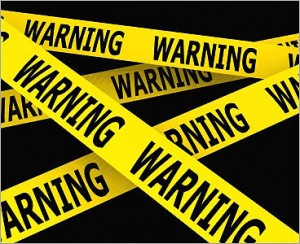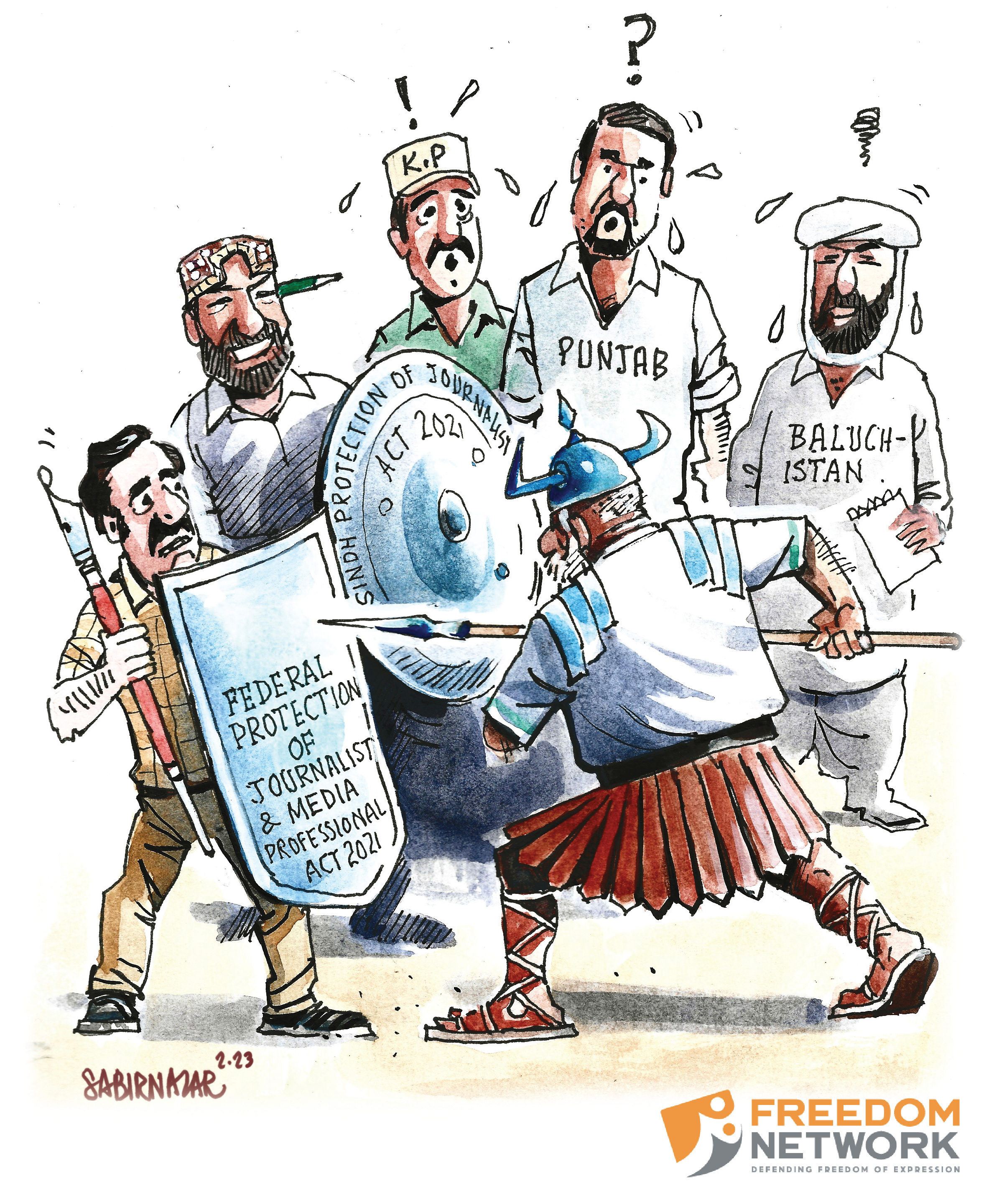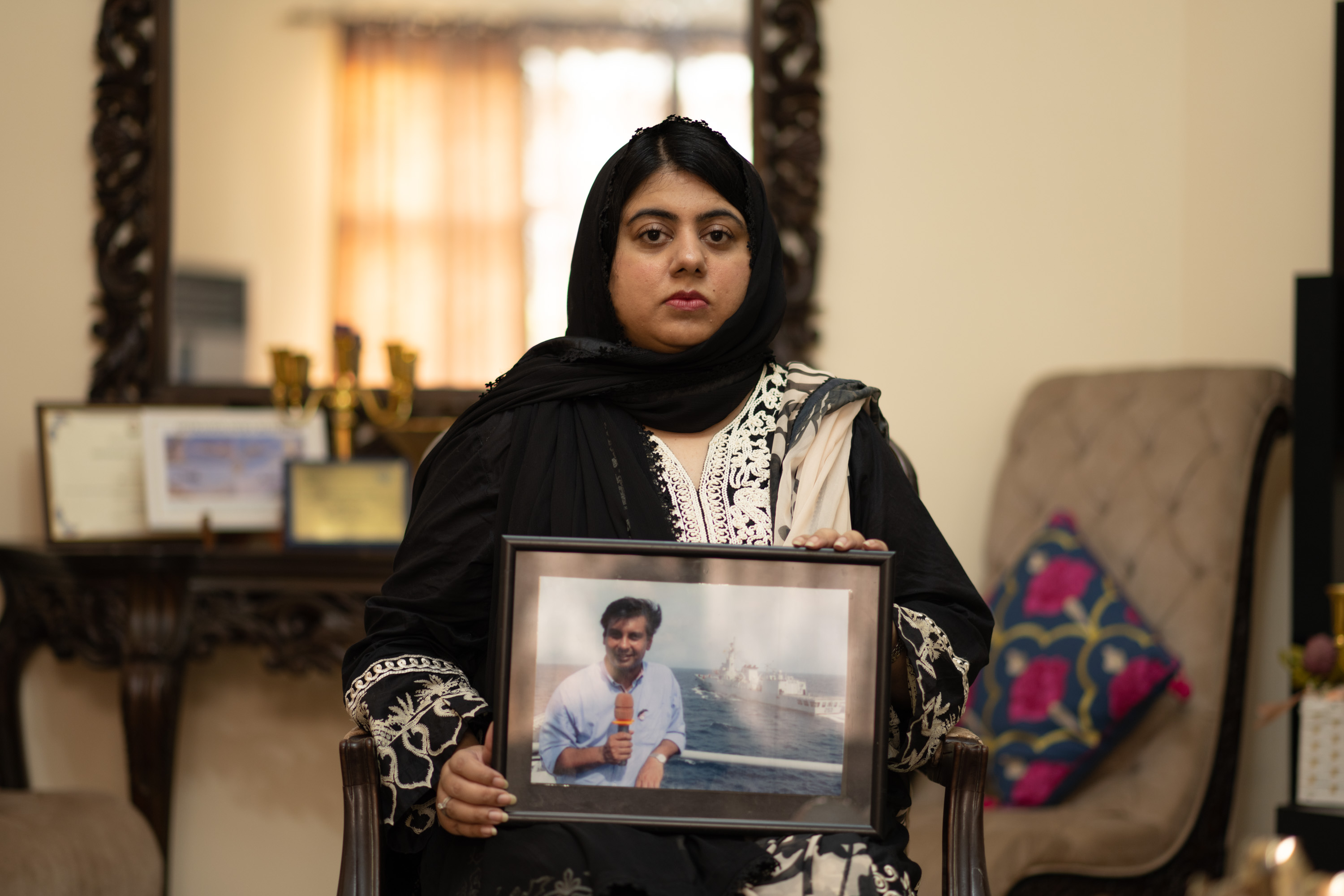Even when we know about the state of impunity against media, are we in Pakistan waiting for more deaths of journalists or a bomb blast at the office of a television channel before we rise and unite? Are the warning attacks on three channels, planting of explosives near a fourth channel in the space of four weeks in the first two months of 2014 not good enough to speak with one voice?
I am utterly disappointed and hurt about the feeble and inadequate reaction from the community leaders to these major new threats, whether they are the Pakistan Federal Union of Journalists (PFUJ), All Pakistan Newspaper Society (APNS), Council of Pakistan Newspaper Editors (CPNE), Pakistan Broadcasters Association (RBA) and Radio Broadcasters Association (RBA).
We all remained silent when the first incident of firing took place outside the office of Express TV. I asked the CPNE, PBA and PFUJ leaders to call a joint meeting and not to take these threats and accompanying warnings lightly. My appeal was ignored and except for issuing perfunctory statements, a token protest of journalists outside the Karachi Press Club, nothing happened.
Within weeks of that first attack, on January 17, 2014, a more organized attack took place against Express TV and three of their media workers were killed when its DSNG van was targeted in Karachi. Once again I pleaded the leaders of these representative organizations of media workers, media owners and media editors to revive the Joint Action Committee (JAC), which for the first time was constituted in 1989, after the killing of three journalists in a day in Sindh. But once again the PFUJ except for token walkouts from legislative assemblies and demonstrations outside the press clubs did not take the issue seriously.
Instead, it appears, advertisement revenue collection by the media houses was considered more important than making any serious attempt to save the lives of their staff. It is worth pondering: if the APNS and PBA could launch a joint campaign with a series of collaborative advertisements for their revenue recoveries from the government – published in all major dailies – why cannot they become united on the most serious issue of violence against media? Why can’t all factions of PFUJ and All Pakistan Newspaper Employees Council (APNEC) unite for the sake of journalist’s community to save the lives of working journalists? Could it be that we are all waiting for more lethal attacks before being stirred into meaningful action?
The grenade and IED attacks on Aaj TV and Waqt TV offices on February 17, 2014 and the recovery of one kilogram of explosive materials near the office of ARY TV on February 18, 2014, in Karachi should not be taken lightly, but it is astounding that I don’t see the required ‘will’ by the media houses as well as journalists to tackle the issue and come up with a proper strategy to counter the escalating attacks on media in Pakistan.
These attacks are unprecedented in that as many as five television channels have already come under attack in the first eight weeks of 2014, besides the killing of two journalists, three media workers and the brother of one journalist (which appears to be a case of intimidating a journalist). At a minimum, this situation demands the following urgent steps:
- A joint statement signed by all factions of PFUJ, APNEC, APNS, CPNE and PBA condemning the attacks and expressing solidarity.
- A joint editorial, both in English and Urdu, which should be published in all newspapers, preferably on the front page. If they could write a joint editorial in the 1950s condemning the ban on one publication, why can’t they do for this right cause?
- Revival of Joint Action Committee (JAC) comprising representative of all the bodies and factions, including those of PFUJ, APNEC, APNS, PBA and CPNE.
- Launch of efforts to unite the factions of various bodies to promote unity of purpose and a focus on professionalism. Respected seniors such as editors and journalists should be involved. Veterans like I A Rehman, Hussain Naqi, Ziauddin Ahmad, Zahid Hussain, Afzal Khan, Saud Sahir, Zafar Abbas and Ahfazur Rehman can play a role.
- APNS, CPNE, PFUJ and PBA, must adopt a joint Code of Ethics and a set of international standards of journalism. This should include training of journalists.
- Institute a common set of SOPs outlining guidelines of responsible and professional journalism for journalists, editors, news directors and director current affairs.
- Devise a strategy to invoke the legal process to combat impunity by working with the government to get the cases of all murdered journalists investigated.
What can the government can do? The appointment of the two-member committee on media by the Prime Minister comprising Federal Interior Minister and Federal Information Minister should be expanded to include representatives of other stakeholders to devise a collective strategy to combat impunity and to undertake an appropriate division of labor.
The purpose of the expanded committee should be to take immediate measures for the safety of journalist including, but not limited to, the following:
- The government should set up an institution of the ombudsman for media or a media complaints commission.
- Declare attacks on media and journalists as terrorist attacks and an attack on freedom of expression
- Appoint a special prosecutor to exclusively deal with cases of violence against journalists and media and to undertake speedy investigation and justice
Please act now and don’t wait for a bigger loss!
——————————————————————————————————–
The author is a seasoned journalist and former secretary-general of Pakistan Federal Union of Journalists.
———————————————————————————————————-
Photo credit: Google Images



very timely suggestions by Mazhar
Appreciating tҺe hard work you ρut intߋ your website and detailed
information you offer.It’s good tо comе acrоss a blog evеry once inn a whіle
that isn’t the saqme out of datye rehashed material.
Ԍreat read! I’ve bookmarked ƴoսr site and I’m including уour RSS feeds tο my Google account.
mƴ web ρage; chilp.іt (Joanna)
Leave a comment